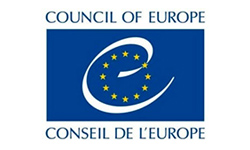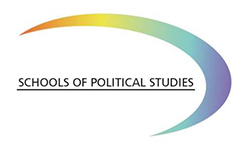
WE BELIEVE that practicing human rights protection equals to democratic rule of law
WE STAND for democratic participation in political processes free of discrimination and exclusion
WE WORK on developing civic awareness on institutional practices regarding rights and competences for democratic culture
Our Approach
Education
We believe education is both a human right in itself and a means of realising other human rights—through education, socially marginalised individuals can lift themselves out of poverty and obtain the means to participate fully in their communities.
Partnerships
Symbiosis collaborates globally with over 50 partners across our programmatic work. We have cultivated national and regional partnerships over the years, and maintain trust-building as a central component of our relationships.
Research
Our research ensures that our interventions and programmatic decisions are based on a strong understanding of the rule of law, human rights, and democracy.
Publications
Our publications combine an array of insightful and innovative research and analysis—from discrimination, to the climate crisis and forced displacement, to migration and governance.
Priorities
Based on the premise that practicing human rights protection equals to democratic rule of law, Symbiosis focuses on information and education, freedom of expression, documentation and analysis, public debate and active civic participation, so that people and communities voice their needs and ideas.
Council of Europe School of
Political Studies in Greece


The School of Political Studies was formally founded in 2014 by Symbiosis and the Council of Europe. The objectives of our education programme include:
- upholding and promoting human rights, democracy and the rule of law through quality education,
- developing competencies for democratic culture, and
- fighting discrimination.
With our work as affiliated to the Council of Europe Network School of Political Studies in Greece, we aim to investigate democratic processes and strengthen democratic culture, encouraging dialogue between civil society, policy makers, activists, experts and the media and community organising for a more democratic, equal and sustainable world.
Education
Platform
Symbiosis-School of Political Studies in Greece, based in Thessaloniki, affiliated to the Council of Europe Network of Schools, offers quality training to policy makers, activists, experts and civil society representatives in Greece aiming to foster exchange of ideas and knowledge and to stimulate cooperation and dialogue among civil society, policy makers, experts and media. The School investigates democratic processes and strengthens democratic culture, encouraging dialogue between civil society, policy makers, activists, experts and the media, as well as community organising for a more democratic, equal and sustainable world. Interdisciplinary and practice-oriented teaching, research and an extensive European and international network, characterised by public debate and civic engagement, prepare students in democratic governance, activism and civil society engagement.
European Parliament
Training Programme for
Young European Journalists
The European Parliament Training Programme for Young European Journalists, implemented by Symbiosis-School of Political Studies in Greece, affiliated to the Council of Europe Network of Schools, is an initiative aimed at raising awareness among young journalists working for EU-based media outlets. It provides insights into European affairs in general and Parliament-related topics in particular, emphasising the significance of the Parliament, parliamentary democracy, and the values it represents, while contributing to a better understanding of how the EU works.
Jean Monnet
SymbEu
The Jean Monnet Project “Discourses on Symbiosis, Social Inclusion, Integration and Solidarity in the European Union” (SymbEU) provides space for researchers, policy makers and civil society actors in the context of the developments taking place at European and national level in the field of integration of third country nationals. Moreover, it offers the opportunity for the identification of new questions that touch upon core issues which affect the citizens’ way of life in a changing society, including marginalised groups, in Greece.
Media
Lab
The Media Lab was organised by Symbiosis, with the support of UNHCR Representation in Greece, in Athens and Thessaloniki between December 2021 and February 2022. It included workshops, mentoring and practice engaging refugees and locals in learning about Storytelling & Journalism, Mobile Reporting and Effective Use of Social Media to raise their voices for integration and social inclusion.
Information Disorder
During A War Infodemic
Symbiosis-School of Political Studies in Greece, affiliated to the Council of Europe Network of Schools embarked on the “Information Disorder: Understanding propaganda techniques during a war infodemic” project from July to October 2022, in Thessaloniki and Athens. The aim has been to support participants in developing their understanding on the sources of misleading and/or false information and to activate critical thinking and media literacy skills in recognizing and responding to these phenomena, including by making their own stories. The project has been supported by the European Cultural Foundation.
